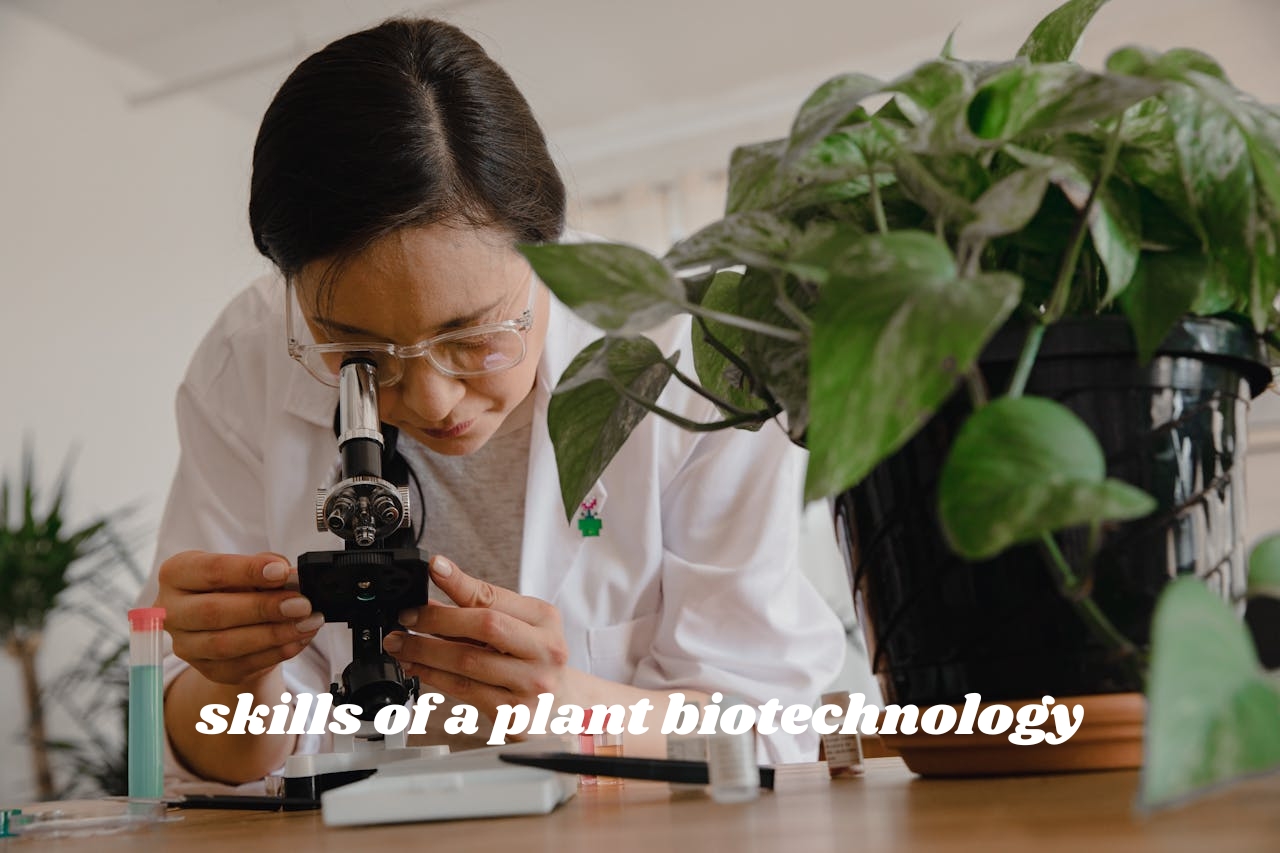People rarely question the ability while the term skills of a plant biotechnology expert invokes admiration of scientific discovery and raises ethical issues. The treatment of this dynamic and rapidly-growing field requires both technological understanding and ethical conduct. Some people find it as a new and remarkable method of practicing efficient and environmentally friendly agri- business. For others, it brings potential hazards of creating unforeseen issues. Here, we discuss the role of plant biotechnology as a profession and discover important skills of a specialist for the world of today.
The Positive Side of Skills of a Plant Biotechnology Expert
Solving Genetic Modification
One of the fundamental tasks of a plant biotechnology specialist is genetic engineering. Scientists intervene in the development of the plant in order to increase characteristics such as pest resistance or drought tolerance amongst others radically changing the face of agriculture.
Extension for Sustainable Agriculture
A plant biotechnology expert’s skill serves as a benefit to the environment. Addressing the food security needs of the growing population these professionals create crops that demand less from the environment.
Advancing Medical Research
From agriculture alone, one cannot master the skills of a plant biotechnology expert. Methods such as molecular cloning and plant-made vaccines are heralding new advancements in medical practice.
The Negative Meanings of Skills of a Plant Biotechnology Expert
Ethical Issues on Genetic Engineering
However, the skills of a plant biotechnology expert pose ethical concern. Is it acceptable to genetically change plants? Opponents think that such actions may lead to various unanticipated effects on the environment.
Dependence on Technology
The over-reliance on the skilled personnel in plant biotechnology can create path dependencies, and erosion of biological polymorphism. This goal may possibly. Blind people to conventional agriculture and other indigenous creatures or plants in the region.
Public Skepticism
The skills of a plant biotechnology expert tend to experience public skepticism. Despite scientific evidence to lay such misconceptions to rest, people feel that the risks associated with GMOs include adverse effects on health and the environment.
Actual Uses of Skills of a Plant Biotechnology Expert
Climate-resilient crops are crop types that have been genetically engineered and/or bred to withstand the unfavorable climatic Change shocks.
Climate change cannot be addressed without a plant biotechnology expert’s skills. Through developing plants suited for different adverse conditions, the professionals help carry out food production regardless of the existing climate variations.
Improving Nutritional Value
The skills of a plant biotechnology specialist increase the quality of food crops. Examples of such foods include golden rice that is rich in Vitamin A and the contribution to public health.
Combating Plant Diseases
Crops that are disease resistant are developed using skills of a plant biotechnology expert. Many of these innovations practiced in environmental agriculture seek to reduce the use of chemical pesticides.
In What Way Does Society Perceive the Skills of a Plant Biotechnology Expert?
Appreciation for Innovation
Most recognize the competence of a plant biotechnology professional as crucial on the development front. These experts are recognized for helping to solve some of the world’s issues such as hunger, climate change and disease.
Wariness Toward GMOs
On the other hand, there are doubts regarding the abilities of a plant biotechnology specialist. Such perception limits their willingness to fully endorse biotechnology due to few allegations of corporate affiliated impacts and negatives.
Changing Perceptions within Education
In the case of plant biotechnology, the key aim should be to explain to the public what a plant biotechnology professional is capable of doing. There is a need to increase awareness and practical acceptance of these improvements by means of transparent communication.
The Ethical Dilemma: On this account, it is possibly to strike a balance between innovation and responsibility
Ensuring Safety Standards
Since plant biotechnology involves the practice of specific skills by the professional, safety measures have to be observed to the highest levels. These measures prevent harm from reaching our environment as well as people’s health in case something goes wrong.
Solving Socially Related Problems
The skill of a plant biotechnology expert must be employed fairly. Proposals to help producers of Procom’s and developing countries need to be enforced to reduce inequality in the modern world.
On the Development of Expert of Plant Biotechnology
Technical Proficiency
The expertise level of plant biotechnology workers mostly comprises skills such as experience in techniques like CRISPR, cloning and tissue culture. The mastery of these tools has allowed for groundbreaking research and smart applications.
Ethical Awareness
Ethical consciousness can be said to be another critical competency of the plant biotechnologist. Since everyone is supposed to work for the society, professionals have to learn that the goal is not only advancing one’s career and meeting a personal achievement, but also taking responsibility for the output made.
Partnership and Interaction
These skills of a plant biotechnology expert are incredibly complementary when performed in conjunction with others. Interfacing with other professionals and translating information back are two critical factors for making a difference.
Conclusion
There is nowhere for plant biotechnology expert potential to be greater and more transformative than in agriculture, healthcare and Environmental Science. What they do offer is quite often also a call to address questions of ethical and societal relevance. In the context of the ability to deploy transgenic organisms or the disputes over the relative merits and dangers of biotechnology, the specialists’ skills point to the part of human beings as negotiators of technology with nature.















Leave a Reply